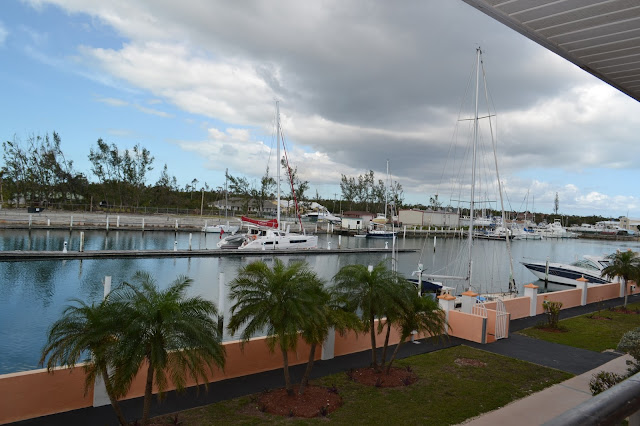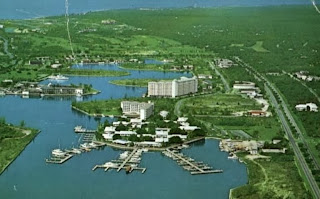Carey Leonard: on the Hawksbill Creek Agreement Extension
The Prime Minister’s communication made on 3rd March 2016 to the House of Assembly on the status of the Hawksbill Creek Agreement is, in many ways, a milestone as it sets out, for the “public at large”, the issues and objectives that our Government deems important as we move the Hawksbill Creek Agreement forward.
Transparency in negotiations, such as the extension and review of certain provisions, of the Hawksbill Creek Agreement, which affect the livelihood of the tens of thousands of Residents and Licensees of the Port Area, is critical.
We now have a checklist of items to aim for. Some items may be achievable, others may not be achievable. But that is the nature of negotiations. What is important is that we, the people, now know what the principal points are and now, for the first time, can play a part in this process.
In addition, significant portions of the McKinsey Report have been made public. This is a report that has been paid for by the Citizens and Residents of The Bahamas for our benefit and it is right and proper that we have been provided with information that will affect the quality of our lives.
So what do we make of all this information?
The McKinsey Report, whilst a good start, is incomplete and will need considerable work to put the Report into a formidable guide, so to speak, for us to follow over the next 10 to 20 years.
It will be recalled that there are two main criteria that the Government set out to achieve. They are, in no particular order, to increase revenue for the Public Treasury and to improve the economic activity in the Port Area and, by extension, the rest of The Bahamas. Indeed the announcement of the appointment of the Hawksbill Creek Review Committee, on 5th March 2015, stated:
“Following upon the McKinsey Report, the Government has therefore appointed a Committee to hold discussions and negotiations with representatives of the Grand Bahama Port Authority, investors, relevant public, private sector and community interests, with a view to making appropriate recommendations to the Government on arrangements for securing both an economic package to promote more robust sustained growth, and a fiscal package that enhances Grand Bahama’s contribution to the Government’s revenue base.”
It will be remembered that when the U.S. economy does well, we benefit. On a smaller scale when one island does well others benefit and the Public Treasury collects more revenue.
It should be noted, however, that nowhere in the “Object and Context” of the McKinsey Report is there any requirement for the authors to look at ways to ‘improve or expand’ the economy, only how to get more tax revenue.
This is surprising as any economist will tell you that the best way to improve revenue is to improve the economy.
So it was left up to the Hawksbill Creek Review Committee to find ways to secure “the economic package to promote more robust sustained growth”.
In order to create a robust sustained economy considerably more information and detail will need to be collected and collated.
The McKinsey Report was supposed to create an “economic baseline fact pack on the Port Area”. Instead, it mixes Port Area information with the rest of Grand Bahama. That means that it is including the third largest population center in the Country, Eight Mile Rock, in the Port Area figures. Clearly this results in a complete misrepresentation and in meaningless results.
The Eight Mile Rock numbers, and those for other areas outside the Port Area, need to be excluded so that we can have accurate information, specific to the Port Area, to work with.
Needless to say, the assembling of accurate and meaningful numbers will take many months.
So what are some of the steps that need to taken? Firstly, a look at the Port Area economy; what constitutes its economy today, what is it made up of? It is known that the Port Area has an industrial sector and a tourist sector, but too often the retail sector and small businesses are not considered. For example the “Mom and Pop Shops”, these very small businesses employ a large number of Bahamians. How are they doing? What will help to expand this very important sector of our economy?
Next an inventory of our infrastructure, especially our utilities needs to be taken. In this day and age, and in the foreseeable future, telecommunications and the electrical power are of paramount importance. Both play an ever increasing importance in attracting and holding on to business. Various options need to be examined that can reduce the cost and increase the reliability of both the power and the telecommunication utilities. This is critical to the sustainability of the economy of Port Area and, indeed, the rest of Grand Bahama.
What about the current laws of The Bahamas? Which ones affect businesses on a daily basis? Which ones affect foreign investors trying to do business in the Port Area? What amendments need to be made to any one or more of those laws which would enable business to operate more efficiently? It is also necessary to keep in mind that The Bahamas has signed up to certain international treaties that may restrict what amendments we can make to our own laws.
What about outside influences? Where is the world economy going? Who are the dominant economic powers? Who represents the emerging economies? Which countries offer the Port Area and The Bahamas as a whole the best prospects over five, ten and twenty years?
A review of the Port Areas international competition with regard to the various sectors of the Port Area economy needs to be taken. The review must examine what advantages the competition may have over us. What is the competition doing that makes it easier for inward flow of investment, what are the differences between us and our competitors? Can we make changes that would reduce or eliminate their advantage?
We need examine what advantages we have over our competition and assess the opportunities we may have and prepare a strategy to use them.
Lastly, what is needed to remain competitive?
The collection of all of the above information and to collate the same will take many months and it is clear that this cannot be achieved within the 3 month extension just given or even a 6 month extension.
So what do we do?
First of all there is no need to hold up extending the current concessions, we can easily grant an extension for another 7 to 10 years now, right now.
There are provisions under the Hawksbill Creek Agreement for a review of the Hawksbill Creek Agreement and where necessary for the parties to go to arbitration if there is a breach of the Agreement.
Clause 3(8) of the Hawksbill Creek Agreement states:
“This Agreement shall be subject to review at any time at the request of either party hereto……”
What this means is that the Hawksbill Creek Agreement can be extended right away. Just as easily as the last 3 month extension was granted so can a 10 year extension be granted.
This means that the economy of Freeport and the Port Area can be kick started right away. Many businesses have indicated that they can’t make any investment until the agreement has been extended and they need much more than a 3 or 6 month extension. Business needs certainty over an extended period of time.
Indeed, if those businesses decided to expand, and started construction of a new building, such expansion would not even be completed before the end of the 6 month period, so they won’t expand until they have certainty.
Business works on 5, 10 and 15 year business plans. A large factory is planned with a 10 plus year pay back. In other words the company won’t have recovered the cost of building until 10 years or so after its completion.
So unless business knows that the Hawksbill Creek Agreement has been extended for at least 10 years it is highly unlikely that there will be any major investment or job creation in the Port Area.
There have been reports that the Grand Bahama Port Authority has not been doing what is required of it under the Hawksbill Creek Agreement. That does not need to hold up the extension either.
Clause 3(6) states
“That the penalty for any breach of this Agreement by the Port Authority or by any lessee company of the Port Authority or by any licensee..…shall be in damages only which shall be fixed by mutual agreement..…and in default of agreement shall be determined by arbitration…..”
So the question of an extension of the Hawksbill Creek Agreement has nothing to do with getting the Grand Bahama Port Authority to do what it should.
The point is that we can do it now, we can extend the Hawksbill Creek Agreement for a period long enough to cause the investment and, most importantly, we can provide Bahamians with badly needed jobs.
So let’s get those in the Port Area and Grand Bahamians, as a whole, the jobs they need and in other cases put those out of work back to work.




Comments
Post a Comment